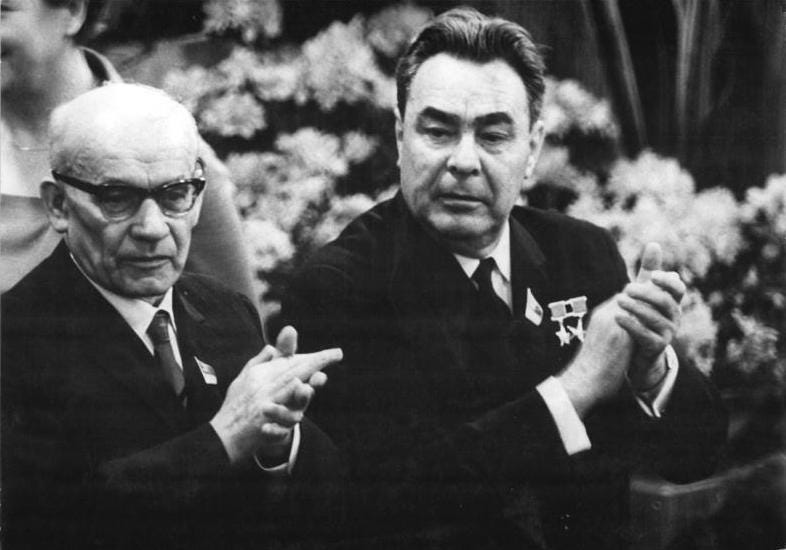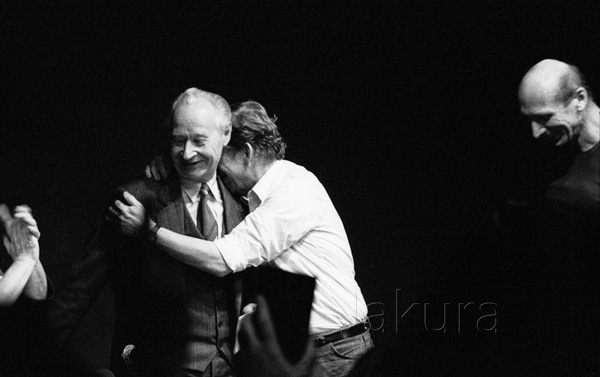Fifty-five years ago this week, between August 20 and 21st, Soviet troops invaded Czechoslovakia. Their aim? Crush the liberalizing government whose reforms threatened to tear down the Iron Curtain.
The 20th century was not an easy time for Czechoslovakia. Hitler’s 1938 Munich Agreement carved up the nation, and doomed it to seven years under the Nazi boot, during which time up to 320,000 innocents, most of them Jews, were murdered.
But the end of the war didn’t mean the end of Czechoslovakia’s suffering. In 1948, only three years after Nazi Germany’s defeat, the Soviet Union staged a coup in Prague that elevated a hardline, Stalinist communist party to power. Czechoslovakia was not liberated; it merely exchanged one totalitarian master for another.
Living conditions were harsh and the economic situation—like in all communist countries at the time and since—was miserable. In 1948, the year of the communist takeover, the Czechoslovak economy was doing better than that of West Germany, “but by 1968 per capita output had slipped to about two-thirds that of [West Germany], in addition to major differences in quality.”
The political situation was even worse. The communist state intruded into private homes and relentlessly spied on their people. Purges—initiated under Joseph Stalin’s command—led to the “the largest show trials in Eastern Europe.” No one was safe: “the victims included military leaders, Catholics, Jews, democratic politicians, those with wartime connections with the West as well as high-ranking Communists.”
The dictatorship’s worst excesses began to fade by 1964, but the country remained under communist rule, much to the people’s frustration. They began demanding more freedoms, and in January 1968, the Czechoslovakian Central Committee chose the reformer Alexander Dubcek to lead the government.
Dubcek’s hopeful agenda was a breath of fresh air for the beleaguered Central European country. The reform-minded politician promised to implement “socialism with a human face,” and under his leadership, Czechoslovakia instituted freedom of speech, freedom of religion, an end to censorship, and democratic elections, among many other positive changes. Czechoslovaks were astounded by their good fortune, and these brief six months came to be called the “Prague Spring.”
Polish communist leader Wladyslaw Gomulka and Soviet Premier Leonid Brezhnev in Berlin in 1967. Photograph by Ulrich Kohls, German Federal Archives.
But others outside Czechoslovakia were taking notice. Soviet leader Leonid Brezhnev was alarmed by what he saw as developments that threatened communism all over the Eastern Bloc.
After the end of the Second World War, the Soviet Union installed communist tyrannies all over Eastern and Central Europe, not just in Czechoslovakia. If Dubcek’s reforms succeeded and Czechoslovakia embraced democracy by casting off Marxist tyranny; who was to say that the oppressed people of Bulgaria, Poland, Hungary, and other nations under the Soviet yoke wouldn’t do the same?
Brezhnev knew he had to make an example. He warned Dubcek to reverse course–and then decided to take more drastic action.
Czechoslovaks with their national flag next to a burning tank in Prague in 1968. CIA Analysis of the Warsaw Pact Forces. Wikimedia Commons.
On August 20, 1968, the Warsaw Pact (a “communist NATO” controlled by the Soviet Union) invaded Czechoslovakia with roughly 250,000 troops and thousands of tanks. The small nation had no chance of stopping the Soviet military juggernaut and didn’t put up any military resistance, though there were pockets of violent resistance, and citizens kept mass protests going for eight months. More than a hundreds of these protestors died, and thousands were arrested and “re-educated.” The New York Times noted the invasion demonstrated that communism “was an ideology that needed to be enforced at the point of a gun.” It also demonstrated the Soviet Union’s hypocrisy, which railed against the West’s “imperialism” but was willing to use naked force when invading a nation to impose “communism with an inhuman face.”
Dubcek was forced to end the Prague Spring and replace government reformers in with “hard-line communists” before being replaced himself with a leader more amenable to Soviet interests. In the aftermath, some 300,000 Czechoslovak citizens fled the country to avoid the tightening iron grip.
But not all hope was lost for the grieving Czechoslovaks, and some of them, like the dissident Vaclav Havel, kept fighting for a democratic Czechoslovakia and opposing the communist regime. The success of 1989’s peaceful Velvet Revolution, which ended communism in Czechoslovakia, twenty-one years after Soviet tanks rolled through Prague, was partly due to their courage.
Vaclav Havel was elected the first president of a free Czechoslovakia, and Dubcek, whose reforms ignited hope in so many hearts, became chairman of Czechoslovakia’s democratic parliament.
Václav Havel embraces Alexander Dubček after news of the Communists' resignations, witnessed by journalist Jiří Černý. Jaroslav Kučera Archives/Wikimedia.
Havel and Dubcek were at a news conference when they heard that the communist party leadership was stepping down. They “hugged and toasted the revolution with champagne, while outside on Wenceslas Square, total strangers began dancing and singing for joy.” An old man, crying tears of joy, said this was the “greatest experience of my life.” Only two decades after hope seemed lost, the Prague Spring was reborn.







